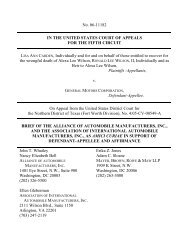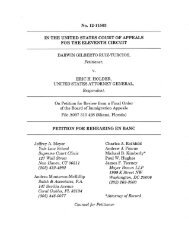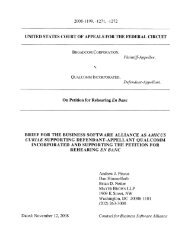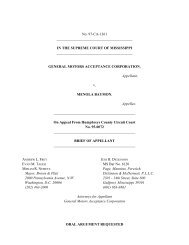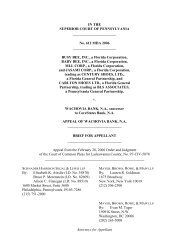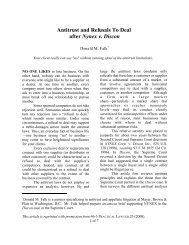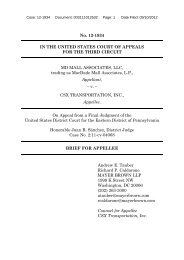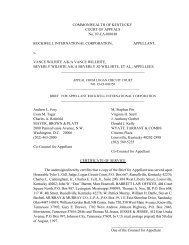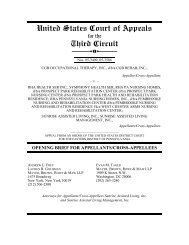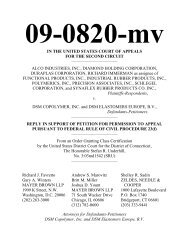No. 5-99-0830 IN THE APPELLATE COURT OF ... - Appellate.net
No. 5-99-0830 IN THE APPELLATE COURT OF ... - Appellate.net
No. 5-99-0830 IN THE APPELLATE COURT OF ... - Appellate.net
You also want an ePaper? Increase the reach of your titles
YUMPU automatically turns print PDFs into web optimized ePapers that Google loves.
theory, even non-OEM parts that are as good as or better than OEM parts could not, under<br />
any circumstances, meet the contractual standard. 42/<br />
In addition, plaintiffs utterly failed to prove that whatever negative perceptions there<br />
might have been had such a universal effect on the market value of used vehicles that State<br />
Farm must be deemed to have breached its contract every time a non-OEM part was installed<br />
on a class member’s vehicle. Indeed, the key witness plaintiffs introduced in an attempt to<br />
prove that non-OEM parts diminish resale value actually proved the opposite. Larry Batton<br />
claimed in his direct testimony that non-OEM parts “always” reduce value. R. 11825. On<br />
cross-examination, however, Batton admitted that an elaborate questionnaire he uses on his<br />
web-site to value consumers’ cars does not ask if the cars have any non-OEM parts. R.<br />
11845-47. Batton also admitted that, in many years of writing valuation letters for State<br />
Farm, he wrote that non-OEM parts devalued a car only one time, which was after plaintiffs<br />
had hired him as an expert in this case. R. 11850-51. Finally, Batton conceded that he<br />
personally sold used cars without disclosing that they had non-OEM parts on them, and<br />
apparently without discounting the price. R. 11843-44.<br />
The real-world experiences of the class representatives also contradicted the<br />
perception theory. Two named plaintiffs (Vickers and DeFrank) who received non-OEM<br />
parts no longer owned the repaired vehicles by the time of trial. As noted above, these<br />
plaintiffs admitted that neither of them received less for their vehicles because of the<br />
42/<br />
Tellingly, plaintiffs’ perception theory directly contradicts their consumer fraud<br />
theory. On the ICFA count, plaintiffs claimed that class members “had no knowledge of<br />
[non-OEM] inferiority.” C. 29170. But the perception theory assumes the opposite — that<br />
non-OEM inferiority is a widely known fact in the market.<br />
-97-



